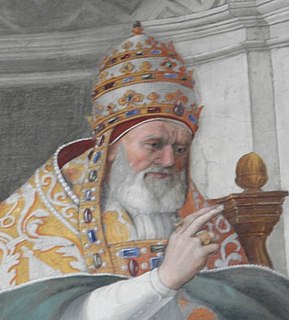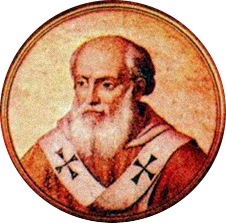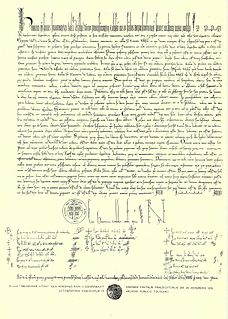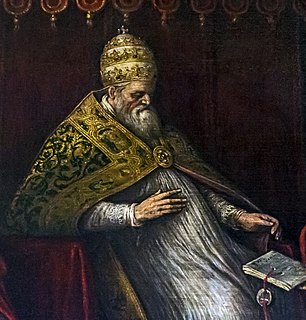 W
WCum hora undecima is a papal bull issued by Pope Gregory IX in 1235 and reissued and elaborated on by several other Popes during the thirteenth century. It contained basic instructions for missionaries and its opening lines reflected the Apocalyptic tradition of the Franciscans:Since the eleventh hour has come in the day given to mankind...it is necessary that spiritual men [possessing] purity of life and the gift of intelligence should go forth with John [the Baptist] again to all men and all peoples of every tongue and in every kingdom to prophesy because, according to the prophet Isaias, the salvation of the remnant of Israel will not occur until, as St. Paul says, the plenitudo gentium enters first [into the kingdom of heaven].
 W
WGrandi non immerito was a papal bull issued by Pope Innocent IV on 24 July 1245, that effectively removed Sancho II of Portugal from the throne, replacing him with his brother and heir Afonso, Count of Boulogne, in the capacity of regent.
 W
WQui iustis causis is a papal bull issued by Pope Innocent IV on 23 September 1243 authorising crusades in Livonia and Prussia. Shortly after Innocent's election to the papacy, the Teutonic Order sought his consent for the suppression of the Prussian rebellion and for their struggle against the Lithuanians. It was reissued by Innocent and his successors in October 1243, March 1256, August 1256 and August 1257.
 W
WQuia maior is a papal bull issued by Pope Innocent III in April 1213 calling for the Fifth Crusade. It was sent to nearly all the ecclesiastical provinces in Europe.
 W
WRachel suum videns is a papal bull issued by Pope Gregory IX on 17 November 1234 calling for a crusade to the Holy Land and ordering Dominicans and Franciscans to preach in favour of it. It was issued before the truce between Frederick II, Holy Roman Emperor and the Egyptian Sultan, Al-Kamil, was due to expire.
 W
WReligiosam vitam is the incipit designating a Papal bull issued on December 22, 1216 by Pope Honorius III. It gave universal recognition to the Dominican Order. The Order already had monasteries in Rome, Paris and Boulogne and had already been locally recognized by the bishop of Toulouse the year before - its creation had coincided with the Albigensian Crusade in southern France, in whose support the Dominicans had been very active. It adopted the rule of St Augustine, but was also regulated by rulings and decisions taken by regular general chapters.
 W
WPope Boniface VIII was pope from 24 December 1294 to his death in 1303. Caetani was of baronial origin with family connections to the papacy. He succeeded Pope Celestine V, a Benedictine, who had abdicated from the papal throne. Boniface spent his early career abroad in diplomatic roles. In the College of Cardinals, he discriminated not only against the Benedictines but also members of the Colonna family, some of whom had contested the validity of the 1294 papal conclave that elected him following the unusual abdication of Pope Celestine V. The dispute resulted in battles between troops of Boniface and his adversaries and the deliberate destruction and salting of the town of Palestrina, despite the pope's assurances that the surrendering city would be spared.
 W
WTerra Sancti Christi is a papal bull issued by Pope Innocent IV on 23 January 1245 calling for a crusade to the Holy Land. In December 1244 Louis IX of France had declared his intention to go on a crusade to the Holy Land and in February Innocent ordered the Franciscans to preach in favour of it.
 W
WVineae Domini custodes is a papal bull issued by Pope Honorius III on June 1225 granting two Dominican friars, Dominic of Segovia and Martin, authorisation for a mission to Morocco. Honorius reissued the bull in October, this time calling on the Dominicans and Franciscans to join the Moroccan mission. He also ordered Archbishop Rodrigo Jiménez de Rada to send Dominican and Franciscan friars to undertake conversions by preaching and to appoint one of the friars as Bishop of Morocco.